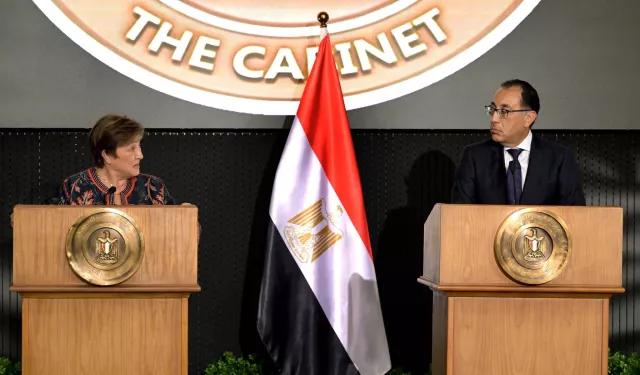Egypt and the International Monetary Fund reached an agreement in Washington last week to wrap up the fifth and sixth reviews of the country’s loan program next month, paving the way for a $2.5 billion disbursement in December, according to a Finance Ministry official.
The Egyptian delegation included the ministers of finance, investment, and international cooperation, as well as the central bank governor, the official said, asking not to be identified because the talks are private.
The discussions centered on Egypt’s reform progress and reaffirmed the government’s pledge to scale back its economic footprint, accelerate state-asset sales, and step away from sectors traditionally dominated by the private sector.
The IMF delayed the program’s fifth tranche in July, merging it with the sixth review amid concerns about the slow pace of privatization. The fund has repeatedly warned that Egypt’s heavy state presence continues to squeeze private firms’ access to capital.
Under renewed pressure to demonstrate progress, Cairo plans to proceed with five asset sales between December and early January, including Wataniya, Safi, Chill Out, Silo Foods, and the Gabal El-Zeit wind farm, the official said. Details on the IMF mission’s visit to Cairo are expected this week, with the review likely to take place in the first half of November.
Prime Minister Mostafa Madbouly announced in December 2024 that Egypt would offer stakes in 10 additional companies by end-2025, including five under the National Service Projects Organization.
The broader privatization program, launched in March 2023, originally targeted 40 companies and banks across 18 sectors, with a deadline that was later extended to December 2024.
So far, Egypt has closed 21 deals worth roughly $6 billion, not counting the massive Ras El-Hekma development agreement, according to Madbouly’s previous statements.
